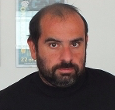Free Software Foundation Europe, FSFE per gli amici, è una fondazione che sostiene il software libero in Europa, difendendo così la libertà digitale. “Software libero per una società libera” è uno dei tanti slogan che descrivono l’attività di questa fondazione che compie i suoi primi 15 anni di attività proprio quest’anno.

“Tra le attività più importanti fatte da FSFE – afferma il presidente Matthias Kirschner – c’è sicuramente l’apertura del dibattito sulla direttiva europea Radio Lockdown. Questo è un esempio di direttiva pensata con le migliori intenzioni, ma che purtroppo per la formulazione vaga di alcune delle sue parti impedirà agli utenti di usare software libero su router, computer portatili, telefoni cellulari, e altri dispositivi radio. Siamo riusciti a convincere una discreta quantità di organizzazioni e aziende a sostenere questa nostra campagna. Sono fiducioso che insieme saremo in grado di far comprendere ai legislatori la necessità di fare modifiche al fine di evitare conseguenze negative per i diritti degli utenti, la concorrenza leale, l’innovazione, l’ambiente, il volontariato e il Software Libero”. Altra importante attività messa in campo da FSFE è quella di supporto ad altre organizzazioni che non hanno la possibilità di creare in proprio del materiale promozionale e alle quali viene messo a disposizione un “kit promo” con adesivi, volantini e manifesti che promuovono software libero, uso della crittografia per le email, ecc. “Adesso – continua Matthias – stiamo organizzando la nostra FSFE Summit di Berlino che si tiene dal 2 al 4 settembre. Questo evento è importante per noi, dal momento che mostra quanto la comunità del Software Libero sia forte in tutta Europa. Anche se il suo nome include “software”, non è esattamente una conferenza Tech. È più come una “meta-tech conference”, visto che ci saranno spunti di riflessione su come la tecnologia influenza il nostro modo di vivere cercando di restituire agli utenti la giusta consapevolezza per riprendere il controllo”.
FSFE ha anche una rappresentanza italiana. “La nostra attività – afferma il vicepresidente FSFE Alessandro Rubini – è più volta a sensibilizzare e aiutare la politica europea che ad agire nei singoli Paesi. Ogni volta che viene promulgata una direttiva europea relativa alla privacy, ai contratti di vendita e servizio, o più in generale alle reti e alla tecnologica, la FSFE ha dato il suo contributo nella discussione preliminare e, spesso, al risultato finale. Se è vero che il lobbismo delle grandi aziende è fortissimo, il Parlamento e la Commissione Europea ascoltano anche il nostro punto di vista, che riesce a migliorare le norme, o smussare i punti più liberticidi delle nuove restrizioni introdotte. Più sul locale, trovo notevole il successo in Italia dell’iniziativa sui lettori PDF. FSFE ha promosso la rimozione dai siti della pubblica amministrazione della pubblicità associata alla pubblicazione di documenti: il formato PDF è ben documentato e usabile da chiunque, ed esistono vari applicativi liberi che lo gestiscono. I siti istituzionali che associano al documento il link per scaricare ed installare un lettore proprietario fanno un grosso disservizio al cittadino, che riceve il messaggio di non avere alternative. La risposta dei volontari italiani è stata altissima: più di un quarto dei siti segnalati sono italiani, e due terzi di questi (circa 200) hanno rimosso la pubblicità ingannevole. Siamo coscienti che il problema non sia stato risolto, ma crediamo di aver almeno sensibilizzato qualche centinaio di amministratori pubblici su un problema importante di comunicazione, non immediatamente evidente a molti”.
Matthias qual è la vostra opinione sui social network?
Riteniamo che possano rappresentare un problema non banale in quanto portano a una centralizzazione del potere. Per iscriversi ai social come Facebook, Google o altri è necessario accettare i loro termini di servizio. Inoltre, come succede nel caso di Whatsapp, per esempio, è necessario installare un software proprietario sul proprio smartphone. E quando soggetti esterni sono in grado di avere il controllo sul nostro operato, sono in grado di esercitare una grande influenza sulle nostre azioni. Chi controlla queste piattaforme può censurare informazioni, influenzare il nostro pensiero e i nostri comportamenti. Nelle democrazie moderne il potere è distribuito tanto che potere legislativo, esecutivo e giudiziario fanno capo solitamente a tre soggetti diversi. Questo per evitare che il potere sia nelle mani di pochi. E questo non corrisponde a quanto avviene nelle reti “sociali” che rappresentano pertanto un pericolo. Evitare questa cosa è possibile ad esempio decidendo di pagare un fornitore per i servizi di posta elettronica invece che affidarsi ad un provider che ci dà un servizio apparentemente gratis in cambio dei nostri dati.
Matthias quali buone pratiche di “libertà digitale” a livello europeo possiamo citare?
Nella pubblica amministrazione non mancano buoni esempi. Il caso italiano, grazie all’impegno di Carlo Piana, che impone alle PA la scelta di software libero a parità di qualità al momento dell’acquisto del software è un esempio legislativo da seguire sicuramente. Il problema poi sta nell’attuazione di tali politiche. Ci interessa poco che ci siano buone norme se poi queste non vengono applicate. E allora ritengo che anche esempi di piccole realtà che scelgono software libero possano invece fare la differenza: il sistema sanitario svedese è sicuramente da imitare. Lì hanno creato una piattaforma per la sanità, HIP, mettendo a disposizione un’API realizzata con Software Libero e standardizzando il formato e l’accesso ai dati. In questo modo ogni organizzazione pubblica o privata, svedese o no, può facilmente creare un’app per il sistema sanitario che funzionerà ed è conforme alle leggi sulla privacy svedesi. Tra gli obiettivi di FSFE c’è quello di arrivare a pubblicare con licenza libera tutto il software sviluppato con denaro pubblico. Non dobbiamo poi dimenticare che buone pratiche arrivano anche da soggetti privati, aziende che decidono di investire su software libero e saranno presenti anche durante il nostro summit di settembre.

Alessandro cosa servirebbe in Italia per avvicinare le PA all’uso di sw libero?
Più coscienza dei problemi di dipendenza legati alla tecnologia e al controllo dell’informazione, perché solo la consapevolezza delle barriere è uno stimolo a superarle. Come FSFE cerchiamo di lavorare in questa direzione, ma è un messaggio difficile da portare proprio perché l’informazione è già ambiamente sotto controllo. E poi servirebbe più propensione ad aprire il portafoglio nella direzione giusta: il software libero è spesso anche gratuito, perché una volta realizzato (e pagato) è giusto che sia disponibile a tutti, senza rendite di posizione per chi lo ha sviluppato. Ma rimane il problema del finanziamento del tempo-uomo di chi scrive, e manutiene nel tempo, i vari strumenti. Il successo del kernel Linux e di parte di quello che vi ruota attorno non dipende solo dallo sforzo degli appassionati che ci lavorano gratis la sera; oggi la quasi totalità dello sviluppo avviene da parte di dipendenti di aziende del settore, che vengono pagati per il proprio tempo e le proprie competenze. Se guardiamo, invece, l’adozione del “registro elettronico” nelle scuole, molti istituti sono corsi allegramente verso il monopolista del settore che, tra l’altro, ha già ricevuto una sanzione dall’antitrust per questioni di interoperabilità e costi di uscita. Altre scuole, più attente, hanno preferito pagare piccole aziende locali che garantiscono un servizio migliore e più personalizzato, seppur proprietario. Pochi, però, di quelli che hanno adottato LampSchool (software libero e gratuito), hanno anche scelto di finanziare il progetto, che potrebbe migliorare di conseguenza.
E il famoso art. 68 del Codice Amministrazione Digitale?
Purtroppo la norma non è stata mai applicata (o molto raramente) anche perché non è mai stato nemmeno chiarito come contrastare le violazioni. Sappiamo di un istituto scolastico il cui dirigente ha eliminato un’aula informatica funzionante e attivamente usata, per sostituirla con un’altra completamente proprietaria, in contrasto con le scelte didattiche degli insegnanti, alla modica cifra di 60000 Euro nel primo anno scolastico, senza contare i successivi costi imposti di aggiornamento. L’esposto degli insegnanti alla corte dei conti è fermo da circa due anni.
Il passaggio al software libero (o, meglio, l’adozione diretta del software libero al momento dell’introduzione dell’informatica in un nuovo settore) è realmente una questione di libertà e indipendenza, tecnologica e culturale. Anche perché è notoriamente molto difficile cambiare un sistema informatico una volta che i propri dati e le proprie procedure sono incastrate nel sistema di uno specifico fornitore. Il CERN, per esempio, usa e sviluppa massicciamente software libero, tranne che per i database, settore in cui le soluzioni libere sono forti solo da pochi anni. La sua licenza proprietaria ad oggi costa 7 milioni di euro ogni cinque anni, ma secondo le loro stime il passaggio ad una soluzione di software libero costerebbe 25 anni-uomo per la conversione di dati e procedure – e ogni anno questa cifra aumenta.
È interessante notare come le scelte dell’industria siano chiare: tutti i grandi operatori tecnologici, nell’informatica e nelle telecomunicazioni, basano da anni tutti i loro sviluppi su software libero. La stessa Microsoft, che distribuisce la prima dose gratis nelle scuole per poi succhiare milioni di euro l’anno a istituzioni e famiglie che difficilmente possono sganciarsi dalla dipendenza (in gergo anglofilo “lock-in”), usa internamente sistemi Linux personalizzati nell’ambito del suo ambiente “cloud”. Che altro dire?
(Foto Antoine Turmel, Flickr, CC-BY 2.0)
English version
Support to the digital freedom with FSFE: a double interview with Matthias Kirschner and Alexander Rubini
It is known as Free Software Foundation Europe: the FSFE foundation is a point of reference for the support of the free software in Europe. “Free software for a free society” it is just one of its slogans to describe the activity of this foundation which is celebrating the first 15 years of activity right now.
“Among the most important activities realized by FSFE – the president Matthias Kirschner says – there is definitely the opening of the debate on the European Directive Lockdown Radio. This is one of those directives designed with the best intentions by policy-makers.Unfortunately the vague and unfortunate wording of some of its parts will lock users out of their own devices and bar them from legally loading Free Software into routers, laptops, phones, and other devices with radio signals. We have managed to convince a decent amount of organisations and companies to support a joint statement. I am confident that together we will be able to get legislators to understand and implement our proposals to prevent negative consequences for user rights, fair competition, innovation, environment, volunteering, and Free Software“.
Another important commissioning activities planned by FSFE is to support other organizations, which do not have the ability to create their own promotional material, giving them a “promo kit” which contain leaflets, stickers, and posters and you can use them to promote the use of encryption in email, Free Software on Android, and so on. Groups can order packs from them, saying what topics they are most interested in, and we’ll send it to them.
“Now – Matthias continues – we are organizing our FSFE Berlin Summit which will be held from 2 to 4 September. This event is really important for us, since it has been showing how the Free Software community is strong across all the Europe. Although Conference name includes “software” word, it is not exactly a tech conference. It is more like a meta-tech conference, since we will be talking about how tech affects everyday lives and looking at ways of returning the control to users“.
FSFE is representing also Italian community, although it is still a really small one. “Our business – says the vice president FSFE Alessandro Rubini – is to raise awareness helping the European policy to act in individual countries. Each time when it was promulgated a European Directive on privacy, about sales and service contracts, or more generally about networks and the technology, the FSFE Foundation has made its contribution in the preliminary discussion, and often in the end result. If it is true that the lobbying of large companies is still very strong, the parliament and the European commission also listen to our point of view, which can improve the rules, or smooth more civil freedom against the new restrictions introduced. For example I find considerable success in Italy the initiative about PDFreaders. In our country the FSFE has promoted the removal from government sites of advertising associated with the publication of documents: the PDF format is well documented and usable by anyone, and there are various free applications that manage it. The institutional sites that combine to document the link to download and install a proprietary player do a great disservice to the city, which receives the message and have not alternative. The response of the Italian volunteers has been very impressive: more than a quarter of the reported sites are Italian, and two thirds of them (about 200) have removed the misleading advertising. We are conscious that the problem is not jet resolved, but we believe we have at least a few hundred sensitized public officials on a major communication problem, not immediately obvious to everybody“.
What do you think, Matthias, about famous social network sites, and how could we explain the risks we run with them?
We consider most of them problematic, as most of them lead to centralisation of power. If you want to communicate with people over Facebook, Google+ or other “social network sites”, you also need an account there and agree with all the rules their terms of service. Further more some of them, like WhatsApp, you additionally have to install proprietary software on your phone. When others control such tools, they are able to exert great influence over our actions. Whoever controls those platforms can censor your communication and to a great degree influence your thinking and your behaviour. Whoever decides how software operates has great influence over how we live and work. In modern democracies power is distributed. We distribute legislative, executive and judiciary powers between different people and also on different levels like central, regional, and local government. We do that to make sure that there is not too much power in too few hands. Instead of relaying on tools, which could be dangerous for us, we should rather use real networks which are distributed, where nobody has too much power. For example with e-mail you can choose between different providers to communicate with others. You can start right now by paying for an e-mail provider whom you trust to act in your interest, instead being part of those big centralised providers whom you pay with your data.
Can you highlight, Matthias, 3 good practices about Free Software and Open Standards around Europe?
In the public administration there are some good policies. A nice example of which we are proud of is the [guidelines for the use of Free Software in the Italian public administration I say we are proud because our general council Carlo Piana was helping to improve it. The breakthrough is that the Italian Digital Agency issued rules saying that all government organisations in the country must consider using Free Software before buying licenses for proprietary programs. But in the end it depends on the implementation of such policies. We do not care if there are nice rules written down, but nobody acts accordingly. That’s why sometimes smaller projects which are actually implemented are making a bigger difference.
In this regard the health system inSweden is a good example of the correct use of Free Software and Open Standards. What they did there, is instead of overloading the public sector with the task of developing apps for every niche case, they created an Free Software API and standardised the format and access to the data. They called it HIP (for Health Innovation Platform) and everybody can use it. Like that, any public organisation or private company, Swedish or not, can easily create an app for the Health System that will work and conforms to Swedish privacy laws. The goal of the Free Software Foundation Europe is that all software developed with public money, should be available for the public as Free Software. Beside that we should not neglect the private sector when we look at good practices. There are more and more companies who have “Free Software first” policies. They understood that they themselves should be able to control the technology they use, and they are fast in implementing that. Stefan Richter will give a talk about that at our FSFE summit in September and we several other speakers covering Free Software in the public administration.
Alessandro Rubini, in your opinion, what would be and what we need in Italy to bring the PA to the use of free sw?
More awareness of addiction issues related to technology and the control of information, because only the awareness of the barriers is a stimulus to overcome them. As FSFE we are working in this direction, but it is a difficult message to take because the information is not complete and easy to spread. It would serve more willingness to open this wallet in the right direction: free software is often free, because once made (and paid for) it should be available to all, regardless of income position for those who developed it. But the problem of financing the free and open projects remains. The success of the Linux kernel and part of what revolves around not only depends on the efforts of enthusiasts who has been working on the project for free in the evening time after their daily job activities; today almost all of the development is done by employees of companies in the sector, who are paid for their time and their skills.
Many institutes have realized courses toward the industry monopolist – which, by the way, has already received antitrust sanction for interoperability issues and costs but if we look, however, the adoption of the “electronic register” in schools exit. A lot of schools, more attentive, have preferred to pay small local businesses that provide a better and more personalized service, but few of those who have adopted LampSchool (free and free software), also chose to finance the project, which would improve accordingly.
And what about the famous art. 68 of the italian Code of Digital Administration?
Unfortunately the rule has never been applied (or very rarely) because it was never even decided and preview how to counter violations. We know of a school whose director has eliminated functioning computer room and actively used, to replace it with a completely proprietary, in contrast to the educational choices of teachers, the modest sum of 60,000 euros in the first school year, not counting subsequent costs imposed by update. The complaint of the teachers at the court of auditors is stopped for about two years.
The transition to free software (or, rather, the direct adoption of free software at the time of the introduction of information technology into a new sector) is actually a technological and cultural matter of freedom and independence. Also because it is notoriously difficult to change a computer system once their data and procedures are embedded in a specific vendor system. CERN, for example, uses and develops massively free software, except for the database, the field in which the free solutions are strong only in recent years. Its proprietary license today costs 7 million euro every five years, but according to their estimates the transition to a free software solution would cost 25 years-man for converting data and procedures-and each year this figure increases.
Interestingly, the industry’s choices are clear: all the big technology players, in data processing and telecommunications, have been basing for years all their developments on free software. Microsoft itself, which distributes the first dose for free in schools and then suck million euro a year to institutions and families that can hardly break away from dependence (commonly Anglophile “lock-in”), internally uses custom Linux systems within its “cloud” environment.










Facebook Comments